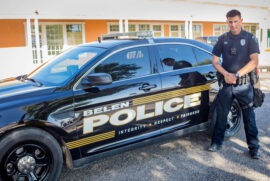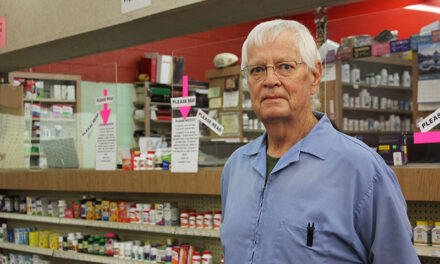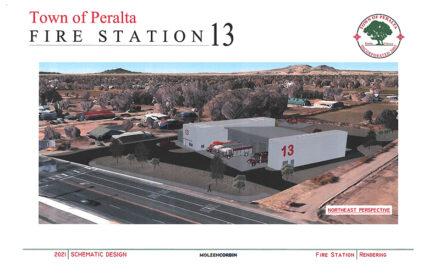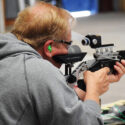Belen Police Officer Daniel Kloeppel always wanted to have a career in law enforcement, even from a young age.
“I thought they were so cool in their fast cars, with all the lights and cool guns,” Kloeppel said with a smile.
“Once I got older, I realized there was a lot more involved than just fast cars and guns.”
He hopes to, eventually, get into a team that specializes in narcotics.
“I knew this community suffered a lot from property crimes that stems from narcotic abuse and stuff like that, and I just wanted to help,” he said.
Kloeppel has been known to go beyond the phrase “serve and protect.” That is why he has been named one of the News-Bulletin’s Unsung Heroes this year.
He’s helped injured victims of a car crashes before the paramedics get to the scene, which has saved lives.
Police officers are often the first on the scene. Their job is to clear out the area and hold off traffic so the paramedics are able to do their job as quickly and efficiently as possible.
“I can’t sit there and watch someone go untreated. I can put my car in the middle of the road to block traffic, and at that point I’m just standing idle,” Kloeppel said.
“They taught us how to use our trauma kits, they taught us how to do CPR and first aid. If I can get the bleeding to stop on somebody, that’s one less thing that the paramedics have to worry about so they can get them to the hospital.”

Belen police officer Daniel Kloeppel not only protects and serves the community, but he takes the extra step when he responds to incidents involving injured people. He carries a trauma kit and will use it if needed. The Belen fire chief said he has saved several lives while on duty.
Anna Padilla| News-Bulletin photo
Kloeppel said he’s learned different skills from paramedics at various incidents that he’s been called out to. He can perform simple functions on someone who’s been injured to hold them over until the paramedics can reach them.
“It’s pretty much instinctual at this point. There’s a lot of the crashes that we get called on where someone is really injured and I just feel like I need to help them to get them out. It’s become a habit.”
While on duty, Kloeppel carries a trauma kit in a pack around his belt.
Officers are given state-issued trauma kits that contain items such as a compression bandage, gauze, a tourniquet and trauma sheers.
One night, there was a single-vehicle rollover with injuries on the interstate that the officer responded to.
“I ran up and saw the guy all banged up. I had to run back to my car to get my trauma kit because there’s really no good way to carry it,” Kloeppel said.
“That’s when I started carrying the kit so that it was on me at all times.”
The trauma kits are made for officers to treat themselves in the case of an injury, but Kloeppel was using the kit on other people who were injured.
Officers will sometimes carry their kits in their pockets, which causes the pants to be bulky, he said. Some will opt to carry the kits in their police vehicles.
His portable pack allows him to carry the trauma kit and some extra supplies in case he needs them.
“Someone at the station was ordering a bunch of these packs but nobody was wearing them. I ended up with one and decided I was going to utilize it,” Kloeppel said.
There was another accident at the rail yards that involved a man who had both his legs severed. Kloeppel and his partner were the first on the scene and applied tourniquets to the victim to stop the bleeding.
Belen Fire Chief Brett Ruff nominated Kloeppel based on the experiences he’s had with him on the incidents where both police and the fire department are on the scene, like that one.
“Most police officers may not know how to do that or may not do that,” Ruff said.
“He was quick to action and applied tourniquets on the victim and saved his life.”
When asked if he considered himself a hero, Kloeppel immediately denied it, saying he was simply doing his job.
“I do what I can to help people,” Kloeppel said. “When I go to any call, that person’s having the worst day of their life, and my job as a policeman is to put their mind at ease and give them the help that they need or resolve the situation.”
Kloeppel cited instances when it takes paramedics 15 minutes to get to the scene for a multitude of reasons. He said since officers are often first on the scene, they should be able to help until paramedics get there.
“There’s so many different calls that we go on that I just feel like if more cops were able to act faster, I think it would decrease the number of people that die from trauma,” Kloeppel said.
He hopes there will be a first responder training that police officers can attend to learn basic EMS training.
“He’s always asking questions and wanting to help,” Ruff said. “I’ve been on a lot of scenes with him where he will go the extra mile to help someone. That to me is the definition of an unsung hero.”
















